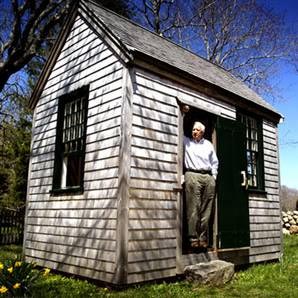
(This got me wondering what books I would pick!)
Saturday was a busy day, because in the morning we started at 9:00 to hear my mother’s new favorite author, Will Schwalbe. His wonderful book is The End of Your Life BooK Club; it is about how, at the end of the author’s mother’s life, when she was dying of cancer, they formed a two-person book club, reading and talking about various books. Schwalbe made a number of interesting points in his talk.
One, as much as he values books, he now values conversation about books even more. Reading connects us with people and places far away, but conversation connects us with our family, our friends, or indeed strangers with whom we find that we share books in common.
Second, Schwalbe is on a crusade to get more people to talk about more books. He urges people, when they start a conversation, to ask “what are you reading?” rather than “how are you doing?” He mentioned an example of a grandmother whose conversations with her grandson were rather perfunctory until she asked him what are you reading. Hunger Games, the boy said. The woman bought a copy, read it, and then asked her grandson a question about why one of the characters made one choice. Soon, he said, they were talking about the book, and indirectly talking about the big issues that book raises.
Third, Schwalbe said, we are ALL in the End of Your Life Book Club; we just do not think about it that way. We are all here for a limited time, with a limited number of books to read, and we should make them count. He is NOT one of these people who says that one should read only the classics; he and his mother read a number of lighter books, such as PG Wodehouse. But we should make use of the time we have to read and to talk about our reading.
This was brought home to me later in the day, after my own book talk. We were upstairs, in the glorious upper hall of the Unitarian Church. I was paired with Evan Thomas, author of among other things Ike’s Bluff, a great personality study of Eisenhower. The drill was that someone was going to introduce Thomas, he was going to speak, someone was going to introduce me, I was going to speak, then we were going to take questions. Before the event, Evan and I were sitting on the steps chatting with the person who was to introduce me, a nice young man, Owen, from the island’s book store. We talked with Owen about this and that until the time came, then Evan and I went up on the stage, and Owen went down into the seats.
Evan spoke well, as one would expect from an author of about six books, then sat down. I looked for Owen, but did not see him. One of the other organizers came up to the stage, told the crowd that Owen had to leave to deal with an emergency, and that I “needed no introduction.” I started by thanking my parents, and the Shacklefords, and Jane Moore. Then I talked about Seward, especially emphasizing his connection with Nantucket. He never visited, but he spoke eloquently about the island’s whaling industry, and the interest of Nantucket whalers in Alaska may well have prompted his interest, which led to the eventual purchase.
On the way out, I asked one of the organizers what the emergency was that had taken Owen away. I hoped that she would say the emergency was something like one of the other authors needing a sandwich or some such. Instead, she said that he had received a cell phone call and learned that his brother had died in a car accident. The brother, she said, was only twenty-eight years old.
So, before I write another word, I need to say, to my siblings Fritz Gretchen and Karen: I love you, I am proud of you. We assume that the four of us will be saying farewell to Mom and Dad, and that is the likely scenario, but life (this is Schwalbe again) is like a book where you cannot see how many pages are left. You could be reading a short story; you could be reading all three volumes of Marcel Proust.
(From http://walterstahr.com/2013/06/nantucket-notes)









